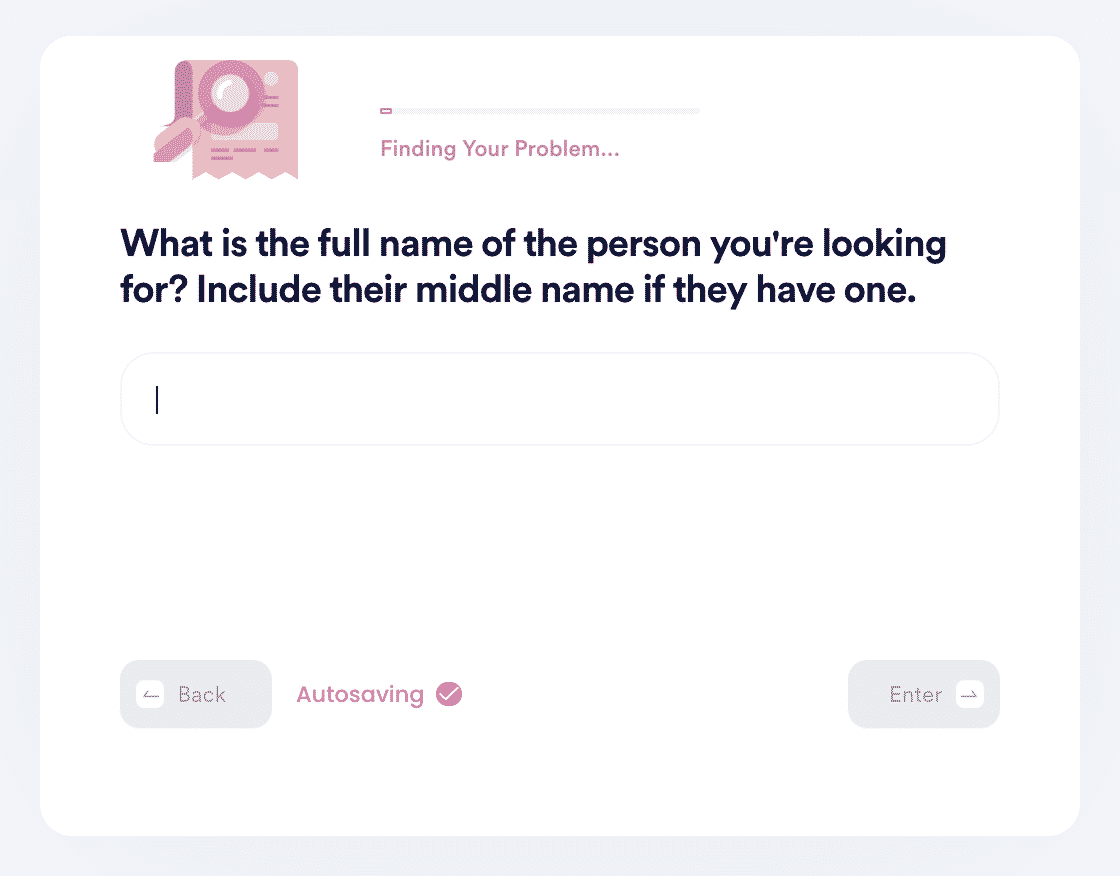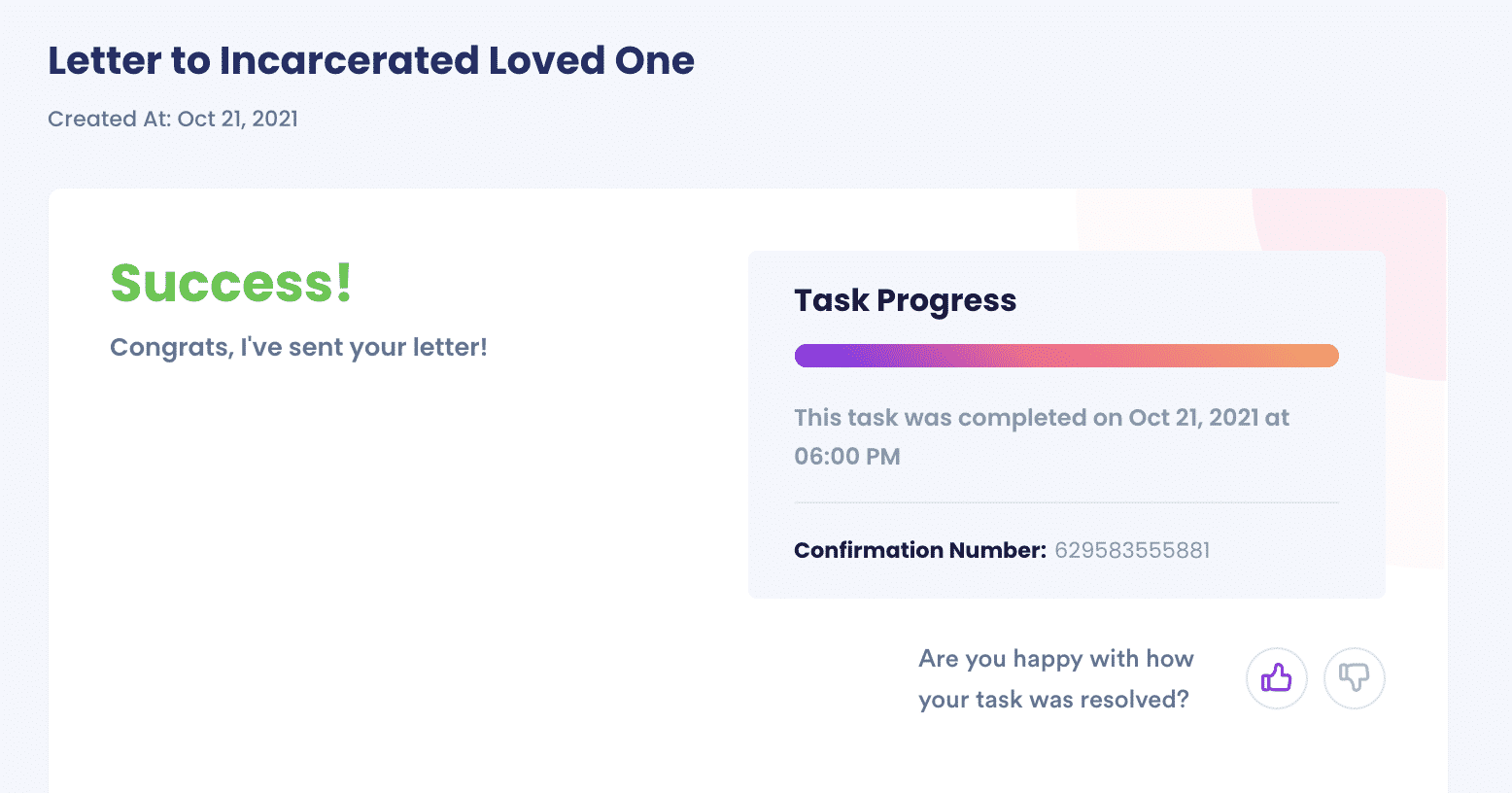All You Need To Know About Prisons And Jails In Texas
When someone you know is in the criminal justice system and committed to a Texas prison or jail, you want to contact them to find out what is going on. Once the change has settled down, you often just want to keep in touch. This may be simply to keep their spirits up or provide information about family and friends. Whatever the reason you have for wishing to contact an inmate in a Texas prison or jail, DoNotPay can help.
We know it can be frustrating to find out what rules you must follow when contacting an inmate in a . DoNotPay is here for you and takes the guesswork out of the rules. Read on to learn more about how you can contact an inmate in a Texas prison or jail and what obstacles you may face.
How Can I Contact an Inmate at a Texas Prison or Jail?
No two facilities have the same policies. However, there are general methods.
- Phone. You may be able to talk to an inmate by phone.
- Postal mail. If you have a prison pen pal, you may be able to send them letters and packages. In some cases, you can provide them with money.
- Visitation. You may be able to visit with an inmate.
Therefore, it may be hard to find out how to contact someone in a . You don't have to worry, though. DoNotPay can help.
What Should I Do Before Calling or Writing to an Inmate in a Texas Prison or Jail?
Before calling or writing to an inmate in a Texas prison or jail, there are some things you need to do.
- Find out where the inmate is located.
- Find out if the inmate can receive calls or mail.
- Find out the appropriate phone number and address.
Here are some considerations to think about when contacting an inmate:
| Phone calls | If an inmate is calling you from a Texas jail, you'll need to know that phone calls may be expensive. So, consider the location before accepting collect calls, especially if you're in another state. |
| Sending mail | You'll also need to consider any restrictions for the inmate when receiving mail, which could be considerable. |
Regardless of these problems and concerns, you have options, and DoNotPay can help -- starting with helping you find an inmate in a Texas prison or jail.
How Can DoNotPay Help Me Find an Inmate in a Texas Prison or Jail?
This is the first problem you need to solve: Finding the inmate. DoNotPay can help you in the Texas Department of Corrections System. Here's how:
- Locate the Connect With an Inmate service on DoNotPay.

- Choose whether you want to locate a loved one, create a virtual mailbox, or send a personalized letter.

- If you want us to find your loved one, provide their details and the state they are located in. We'll then conduct a search on the appropriate state database.

- If you want to create a virtual mailbox, just provide your full name! We'll set one up for you to easily receive incoming mail from your loved one.

- If sending a personalized letter, tell us which facility your loved one is located in and what you would like to say to them. You can even include a photo! Your letter will be delivered automatically - just wait ten days for it to arrive for your loved one!

It’s that easy. And that’s not all you can do with the app.
H2: What Else Can DoNotPay Do?
DoNotPay can help you take care of most of your daily tasks, such as:
- Dealing with credit card issues.
- Finding any unclaimed funds under your name.
- Signing up for services without phone verification.
- Canceling subscriptions or memberships.
- Getting in touch with your incarcerated loved ones.
- Disputing traffic tickets.
- Protecting your work against copyright infringement.
- Jumping the phone queue when getting in touch with customer service reps.
- Applying for clinical trials.
- Fighting speeding tickets.
- Stopping text spam.
- Getting revenge on robocalls.
- Freeing yourself from spam mail forever.
- Suing people and companies in small claims court.
- Signing up for free trials risk-free.
- Scheduling a DMV appointment fast and easily.
- Getting refunds from other companies.
- Getting refunds for delayed or canceled flights.
- Protecting yourself from stalking and harassment.
- Contesting parking tickets.
- Dealing with bills you are unable to pay.
Have you got issues? DoNotPay can help!
 By
By